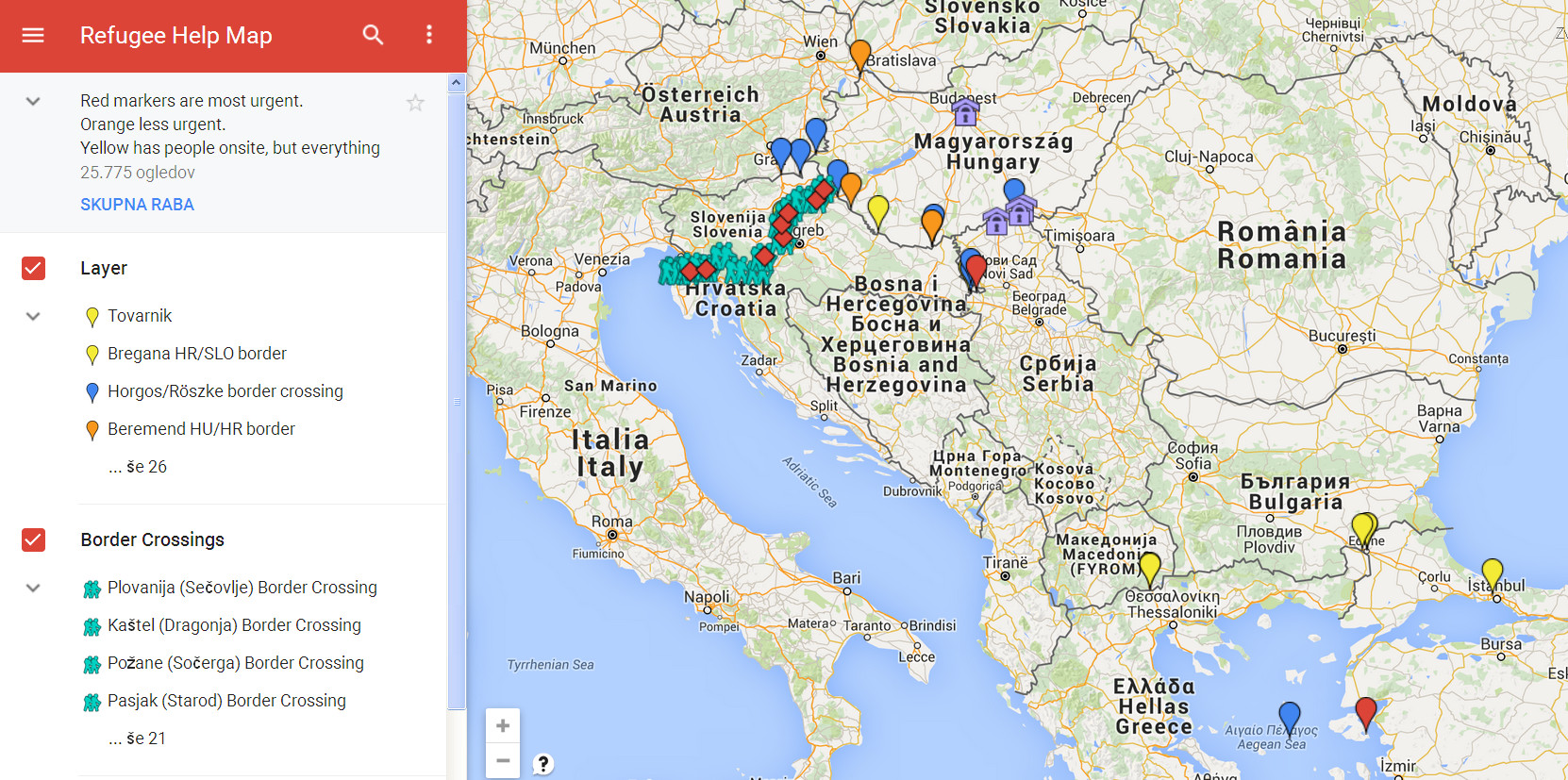The myth of instrumental rationality formulated by Rational Choice Theory (henceforth ‘RCT’) has, since modern times, vitiated the debate about human action, power, ideology and desire, as instrumentality itself is an imperialist ideology which rejects the existence of the aforementioned particularities. Arguing to be neutral and objective, advocates of this essentialist theory claim that (instrumental) rationality is the only basis of action (Williams 2000:57), as human ‘nature’ is allegedly inherently selfish and competitive. This brief challenges these assumptions by firstly positioning RCT within the ontological-epistemological and methodological axioms, in order to illustrate its false premises and the effect of instrumental policies. As a practical example, the workfare scheme of the British coalition government will be discussed. The essay will finally provide an anti-foundationalist alternative for the analysis of rationality, which, this essay will suggest, does not include epistemic and/or ontological fallacies, with Foucault’s interpretation of power and human action providing a better understanding of: political behaviour; the so-called ‘rationality’; ideology; morality, and social norms (Udehn 1996:189). Rationality is itself constituent of biopolitics, and thus, ought not to be separated from it. Indeed, a correlation between the philosophy and political science can be made: ‘since Kant, the role of philosophy is to prevent reason from going beyond the limits of what is given in experience’ (Dreyfus and Rabinow 1982:210).
In order to assess RCT’s relevance in analysing human rationality, one needs to start by addressing its ontological and epistemological position, and its support for methodological individualism; namely, the assumption that facts about societies are merely the sum of facts about individuals (Bhaskar 1998:208). In terms of methodology, although not entirely positivist nor interpretivist, RCT represents a bridge between hermeneutics and causality (Archer 2000:5). In short, the instrumental approach of rationality has been a product of the rationalised relations of modernity, representing a mere ‘contract of rational despotism with free reason’ (Foucault 1984:37). In other words, it reproduces the alienated state of social actors, to predict and control short-term decisions. As status quo and human power relations are nothing more than reified within the RCT’s theory, its purpose and mere ‘success’ is to verify its hypotheses: ‘the standard here is the satisfaction of preferences, not the satisfaction of people’ (Gibbard 1986:167-8). This brief does not attempt to reject RCT per se, but instead show that although individuals can act instrumentally in certain situations, it is not because of their inherent nature.
RCT’s principles are used by political ideologies. Liberal theory, for instance, appeals to universal truth-claims and principles which, in their view, ought to be followed by presumably non-biased, apolitical, Western individuals (Buckler 2010:169). Employing an a priori knowledge of being and human nature, it assumes a ‘such-as-it-is’ ontology, without leaving room for potentiality (Diefenbach 2011). RCT values parsimony when considering epistemology, as their ideas rely on actuality – ‘how things are’; actuality, thus, is given priority over human potentiality. However, only by acknowledging the existence and importance of potentiality can we further understand human action. It is clear then that the ontological dimension of reason presented by instrumental reason does not leave room for the possibility of spontaneity (Cowen 1991:367), and for this reason, ‘until a new and coherent ontology of potentiality’ is found, ‘a political theory freed from the aporias of sovereignty remains unthinkable’ (Agamben 1995:44).
At this stage, it is important to pose the question: is the instrumentally-driven reasoning the product or the premise of instrumental rationality? RCT claims that instrumentality is a cause of social reality (Archer 2000:1). Rational Choice theorists offer a theory of human nature, which, according to them, is inherently bad and competitive. But RCT is not a unified theory, in all respects. Some argue for a normative form of egoism (Korsgaard 2008; Schultz 2012); others prefer not to admit their support for instrumentality (Smith 2004), or dismiss the concept altogether: Raz, for example, argues for a ‘distinctive form of rationality or of normativity that merits the name instrumental rationality or normativity’ (2005:24). Either way, a conceptualisation of atomistic determination of individuals comes into play. It is said, consequently, that people assume the same behaviour both on the market and in politics (Udehn 1996:190): ‘the representative or the average individual acts on the basis of the same over-all value scale when he participates in market activity and in political activity’ (Buchanan and Tullock 1962:20). This statement is fallacious, as it is not the nature of human beings that makes them selfish and individualistic; rather, the constraints of capitalism as structure, shape their own being and the relation with others. Hence, RCT makes a distinction between emotions and reason (ratio and passio), denouncing and outlawing desires and emotions (Williams 2000:57).
As such, RCT does not recognise the existence of capitalist contingencies, hiding away the power which political actors and institutions hold. By claiming that RCT is neutral and at the same time, that human nature is bad, it contradicts itself; the very notions of impartiality and negativity are value-judgements – which, as we shall see, should be actively critiqued. This stance is to be regarded as elitist, giving a misleading account of that which is called ‘human rationality’. Going further, ideas are not given substantive importance either. As Marx argues, the ideas and interests ‘of the ruling class are in every epoch the ruling ideas, i.e. the class which is the ruling material force of society, is at the same time its ruling intellectual force’ (Marx 1970:92). We should therefore be aware of RCT’s theoretical foundations, beliefs and political agenda, in order to critically analyse its substantive value within political science.
The capitalist characteristic of modern episteme, that is, the epistemological unconscious of modern society, has undoubtedly had an impact on framing human rationality. At a philosophical level, the idea of pure rationality proceeds from the Cartesian dualism which distinguishes between (i) the ‘real object of rationality’ – in other words, the norms and values imposed by structures onto agents, and (ii) the ‘irrational’ feature of agents’ desire (Deleuze and Guattari 1983:38), truths being pursued ‘without any sensory experience’ (Simmons 2003). This belief, in Foucault’s terms, is a blackmail of the Enlightenment (Foucault 1984:42), as it assumes that individuals are inclined to make the best choices in order to maximise their utility; choosing the best means to achieve self-interested ends. This entails that the ‘common-sense’ of a self-interested person is natural, which leads to the emergence of one-dimensional individuals who act in a multi-dimensional power system (Marcuse 1964:11). As a result, RCT cannot account for dialectics in the analysis of change and progress, but rather it preserves the discourse formulated by the elite, naturalising and legitimising unimaginative stability (Buckler 2010:165).
It is now time to analyse a policy in order to illustrate RCT’s misrepresentation of social reality (Udehn 1996:189), and the way in which discourse of instrumentality blames the agents without agency, whilst failing to acknowledge the effect of structures. Workfare, the slave labour of modern times, has been a subject of heated debates among politicians across political spectrum. Conservative newspapers, such as The Telegraph, use clichés to emphasise that ‘idleness is the rational choice for people offered money for nothing’ (Johnston 2012; my emphasis). At the same time, Debenhams company, to excuse their practices, declared that their workfare programs are ‘purely voluntary and in no way linked to the receipt of benefits’ (BoycottWorkfare 2013). According to them, it is in the interest of the people to work for free in order to receive benefits and work experience. Not surprisingly, the narrative does not focus in any way on the profit and power of the company, as a result of exploiting the workforce.
A dichotomy between ‘taxpayers’ and ‘lazy benefit claimants’/‘benefit scroungers’ (Aspinall 2010) is maintained in order for the Government to justify their unjust political decisions and encourage the masses to support their selfish reasoning. Contributing to the effect which conservative policies have already created on the social redundancy of the less privileged, the Secretary of State for Work and Pensions, Iain Duncan Smith constructs an image of the unemployed as free-riders: ‘job seekers allowance. The taxpayer is paying her wages’ (Morse 2013). This attitude is in line with Ayn Rand’s argument that;
‘The issue is whether man is to be regarded as a sacrificial animal. Any man of self-esteem will answer: No. Altruism says: Yes” (Rand, quoted by Langner 2009:10).
Let us presume for a moment that Rand is right. Even so, the economic interest of the taxpayer masses is not affected by benefit claimants, but by the private companies whose interests are protected by the state. According to RCT, it is then irrational for the taxpayers to support any policies that would act against their well-being. This is when ideology and power need to be considered: the so-defined antinomical groups (the unemployed and the employed), would, had they been actually rational, instead resist together the power of the state. However, taxpayers fail to recognise that by allowing workfare to exist, their taxes are directed not only towards the unemployed, but also to the companies which are part of that scheme. Even more, workfare schemes bring the level of salaries down, this being, again, to the detriment of society as a whole. It can be seen here how RCT is used by the state only to legitimise its policies.
In a neo-liberal system, structures exercise a different form of power (biopower), as a result of its intersection with capitalism, augmenting individuals’ capacities. Thus, we have moved away from the public punishment of (pre)-modern times, to a prison system where the offenders are hidden away (Buckler 2010:171). Be it in the supermarket or in a higher education institution (i.e. the University of Birmingham) (Jump 2012), workfare, or ‘volunteering work experience’ is underlined by the same assumption: that unpaid labour is a privilege. Hence, causes of poverty are being individualised (Deakin 1996:74) and the risk and failure of the job market is attributed not to the real creators of poverty, but to the economically-dependent individuals who are seen as a burden to society’s economic interests (Peck and Theodore 2000:119).
As shown above, employing instrumental rationality for political purposes proves to not only to ignore real social problems, but also to widen persistent power inequalities. The reason for which the masses unopposingly accept repression, as if it were a state of liberation, is because their drives, their sense of rationality, are not authentic, but rather constructed by the capitalist system (Smith 2007:74). Therefore, it is imperative that a shift towards normative, substantive rationality is adopted, which concentrates on the ultimate ends – taking this way a critical realist stance. Consequently, it is important to recognise the reality of emergent properties to argue that social structures condition, but not determine, the rationality of individuals (Cruickshank 2000:81). On the other hand, the very conception of ‘means’ and ‘ends’ is arguably flawed and irrelevant, when talking about ‘human reasoning’ (or, indeed, politics – assuming that being is political):
politics is the sphere neither of an end in itself nor of means subordinated to an end; rather, it is the sphere of a pure mediality without end intended as the field of human action and of human thought (Agamben 2000:116).
Coming back to the idea of power and potentiality, it can be said that instead of considering any theory of human rationality, one should first understand the aporia of power and power relations; as Kant puts it, ‘[t]he possession of power unavoidably spoils the free use of reason’ (quoted by Flyvbjerg 1998). To do so, theorists need to recognise the historical and ideological legitimation of structures which constructs power relations. Contrary to RCT’s assumptions, it is power that precedes rationality, not the other way round (i.e. they see power as a zero-sum game). Hence, a new critical ontology is necessary to reinvigorate normative beliefs, and, consequently, that which is called ‘human rationality’. Until power equality is established, rationalities ought to be regarded as ‘regimes of practice’ which constrain individuals’ choices and behaviour (Simons 1995:55), giving individuals the tempting illusion of absolute reason and individual autonomy in the short run.
This brief has presented the limitations of the ‘instrumental’ rationality discourse, exposing its limited and exclusionist premises. Seeing itself as objective, RCT gives misleading accounts of individuals’ rationality, refusing to acknowledge the historical aspect of human condition within social structures, and that capitalism itself is a power system, instrumentality being part of governmentality. Instead of considering power as a zero-sum game, one should accept that rationality is inversely proportional to power (Flyvbjerg 1998). It would be perhaps beneficial to entirely reject the idea of rationality, and focus instead on potentiality. In a world where change has been colonized by a market-driven logic, instrumental rationality imprisons our true humanity and destroys the possibility of resistance. A plausible theory of human action would therefore consider the autonomy and importance of potentiality over reason and actuality, regarding action/reason as itself an end.
Bibliography
Agamben, G. (1995) Homo Sacer: Sovereign Power and Bare Life. Stanford: Stanford University Press.
__________ (2000) Means Without Ends: Notes on Politics. Minneapolis: University of Minnesota Press.
Archer, M. (2000) ‘Introduction’ in Archer, M. and Tritter, J., Q. (eds.) Rational Choice Theory: Resisting Colonization, pp. 1-16. London: Routledge.
Aspinall, A. (2010) ‘Midland Benefit Scroungers Cost Us £300 Million’ on Birmingham Mail website, 24 October. Available at: http://www.birminghammail.co.uk/news/local-news/midland-benefit-scroungers-cost-us-300-249832 [Accessed 5 March 2013].
Bhaskar, R. (1998) ‘Societies’ in Archer, M. (et. al.) Critical Realism: Essential Readings, pp. 206-257. London: Routledge.
BoycottWorkfare (2013) ‘It’s not Work Experience: It’s Workfare’ on Boycott Workfare website, 7 March. Available at: http://www.boycottworkfare.org/?p=2230 [Accessed 10 March 2013].
Buchanan, J., M. and Tullock, G. (1962) The Calculus of Consent: Logical Foundations of Constitutional Democracy. Ann Arbor: The University of Michigan Press.
Buckler, S. (2010) ‘Normative Theory’ in Marsh, D. and Stoker, G. (eds.) Theory and Methods in Political Science, pp. 156-180. Hampshire: Palgrave Macmillan.
Cowen, T. (1991) ‘Self-Constraint versus Self-Liberation’ in Ethics, vol. 101, no. 2, pp. 360-373.
Cruickshank, J. (2000) ‘Social Theory and the Underclass’ in Archer, M., S. and Tritter, J., Q. (eds.) Rational Choice Theory: Resisting Colonization, pp. 75-92. London: Routledge.
Deakin, N. (1996) ‘Commentary. Mister Murray’s Ark’ in Murray, C. (ed.) Charles Murray and the Underclass: The Developing Debate, pp. 75-80. London: The IEA Health and Welfare Unit.
Deleuze, G. and Guattari, F. (1983) Anti-Oedipus: Capitalism and Schizophrenia. Minneapolis: University of Minnesota Press.
Diefenbach, K. (2011) ‘Im/Potential Politics: Political Ontologies of Negri, Agamben and Deleuze’ on the European Institute for Progressive Cultural Studies website. Available at: http://eipcp.net/transversal/0811/diefenbach/en [Accessed 3 March 2013].
Dreyfus, H., L. and Rabinow, P. (1982) ‘”The Subject and Power”: Afterword’ in Michel Foucault: Beyond Structuralism and Hermeneutics. Brighton: Harvester Press.
Flyvbjerg, B. (1998) ‘Excerpt from the Book “Rationality and Power”’ on Aalborg University website. Available at: http://flyvbjerg.plan.aau.dk/ratpowexcerpt.php [Accessed 15 March 2013].
Foucault, M. (1984) ‘What is Enlightenment?’ in Rabinow, P. (ed.) The Foucault Reader. New York: Pantheon.
Johnston, P. (2012) ‘Workfare for the jobless is fair, but it needs a chance to work’, on The Telegraph website, 20 Feb. Available at: http://www.telegraph.co.uk/news/politics/9093560/Workfare-for-the-jobless-is-fair-but-it-needs-a-chance-to-work.html [Accessed 2 March 2013].
Jump, P. (2012) ‘Advert for unpaid research position withdrawn’ on Times Higher Education website, 2 July. Available at: http://www.timeshighereducation.co.uk/420451.article [Accessed 10 March 2013].
Korsgaard, C., M. (2008) ‘The Normativity of Instrumental Reason’ in The Constitution of Agency, pp. 26-68. Oxford: Oxford University Press.
Langner, T., S. (2009) Selfish or Caring? America’s Choice: Social Character, Leadership, and the Presidential Elections. Bloomington: iUniverse.
Marcuse, H. (1964) One-Dimensional Man. Boston: Beacon Press.
Marx, K. (1970) The German Ideology [online]. The Electric Book Company. Available at: http://lib.myilibrary.com?ID=124085 [Accessed 2 March 2013].
Morse, F. (2013) ‘Iain Duncan Smith’s Anger Over Poundland, Workfare and Cait Reilly Boils Over On LBC’ on The Huffington Post website, 20 February. Available at: http://www.huffingtonpost.co.uk/2013/02/20/iain-duncan-smiths-explodes-on-lbc-over-workfare_n_2725765.html [Accessed 24 February 2013].
Peck, J. and Theodore, N. (2000) ‘Commentary. “Work First”: Workfare and the Regulation of Contingent Labour Markets’ in Cambridge Journal of Economics, vol. 1, no. 24, pp. 119-138.
Raz, J. (2005) ‘The Myth of Instrumental Rationality’ in Journal of Ethics and Social Philosophy, vol. 1, no. 1, pp. 1-28.
Schultz, B. (2012) ‘Henry Sidgwick’ on The Stanford Encyclopedia of Philosophy. Zalta, E., N. (ed.). Available at: http://plato.stanford.edu/archives/fall2012/entries/sidgwick/ [Accessed 11 March 2013].
Simmons, A. (2003) ‘Descartes on the Cognitive Structure of Sensory Experience’ in Philosophy and Phenomenological Research, vol. 67, no. 3, pp. 549-579.
Simons, J. (1995) Foucault and the Political. London: Routledge.
Smith, M. (2004) ‘Instrumental Desires, Instrumental Rationality’ in Aristotelian Society Supplementary. Vol.78:93–109.
Smith, D., W. (2007) ‘Deleuze and the Question of Desire: Towards an Immanent Theory of Ethics’ in Parrhesia, no. 2, pp. 66-78.
Udehn, L. (1996) The Limits of Public Choice: A Sociological Critique of the Economic Theory of Politics. London: Routledge.
Williams, S., J. (2000) ‘Is Rational Choice Theory “Unreasonable”?: The Neglected Emotions’ in Archer, M., S. and Tritter, J., Q. (eds.) Rational Choice Theory: Resisting Colonization. London: Routledge.
—
Written by: Ioana Cerasella Chis
Written at: University of Birmingham
Written for: Dr Stephen Bates
Date written: March 2013





